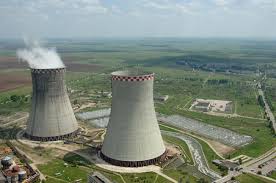Why expanding nuclear energy is still on the South African government’s agenda

Outlining a number of reasons, the author explains that the government of South Africa is still planning to expand its nuclear energy generating capabilities.
The level of media and popular chatter on the topic of nuclear power increased noticeably in South Africa following Russian President Putin’s recent visit. It has been reported that President Ramaphosa told President Putin that South Africa couldn’t afford nuclear power right now. According to the chatter that has been generated, this spells the end of the country’s nuclear ambitions. I am, however, sceptical of this simplistic explanation and do not believe that this is necessarily the case. I have outlined some of the main reasons why I do not subscribe to this belief.
President Ramaphosa’s reported negative reply to President Putin’s enquiries about the government’s progress on its nuclear plans have led many citizens to presume that the final word on the future of nuclear power in South Africa has been spoken. His reply seems to give credence to a sentiment that has been growing, in popular circles at least, ever since the resignation of President Zuma earlier this year.
Contrary to the prevailing sentiment, however, the belief that nuclear power is a dead letter and that expanding nuclear power generating capacity is no longer an option for South Africa might be misplaced. In fact, as will be argued, the nuclear deal may now be more appealing to politicians than ever for a number of political reasons. It might, therefore, be premature to write off the government’s nuclear plans just yet.
To see why this is the case, consider two factors; the infighting that racks the ruling African National Congress (ANC) and growing popular frustration with the pace of socioeconomic transformation; that have come to define contemporary political and economic discourse in South Africa. Popular disenchantment with socioeconomic inequality is growing. Given South Africa’s divided racial history and the current distribution of national income, this disenchantment has fuelled racial tensions and fomented frustration with the slow pace of racial redress. As a result, calls for Radical Economic Transformation to break the power of White Monopoly Capital have become more incessant of late. On the other hand, infighting within the ruling ANC at all levels appears to have become endemic and is certainly more acrimonious.
Divided loyalties have given rise to factions, which threaten party unity. Consequently, President Ramaphosa and his supporters’ grip on power within the party is assailable and probably more tenuous than they would like. Under these circumstances, undertaking a large-scale public infrastructure project such as that envisaged in the government’s nuclear plans would permit the state to direct resources to an influential lobby, black capitalists, who have been demanding a larger share of the economic pie.
This would help the government defend itself against accusations that it is pandering to White Monopoly Capital or is beholden to its interests. It will also blunt the rhetoric of those inside and outside the ANC who have recently taken up the call for Radical Economic Transformation. Increased public spending and the power to dispense largesse it gives holders of the public purse may also enable supporters of President Ramaphosa to purchase the loyalty of party dissidents and other presidential detractors.
Granted, with national elections looming next year, voters can count on seeing members of competing factions engaging in public displays of unity, wary as they all are of eroding the ANC’s support any further in future. Presumably, rivals might also agree that it is prudent for the party as a whole to distance itself from a project which has become tainted by its strong association with former President Zuma especially as more details of the extent of the rot at the state electricity utility Eskom have begun to emerge. Thus, one would expect that public announcements to this effect would not be forthcoming in the foreseeable future and definitely not in the run-up to next year’s elections. The net effect thereof is that the propensity for policymakers to cut backroom deals is likely to increase.
Turning to international affairs, policymakers would no doubt have noted the erratic behaviour of the present administration and growing isolationist tendencies in the United States, along with the apparent acquiescence thereto of other partners in the West, the former colonial overlords in Africa who have traditionally held much influence across the continent in particular. Policymakers may well calculate that, given the unreliability exhibited by these partners, the need to forge and deepen economic ties with key emerging powers such as Russia and China, which appear to be more steadfast in their dealings is more acute than ever.
Purchasing nuclear technology from the former, a country, which is keen to showcase its technological prowess in this area, with finance obtained from the latter, a country, which is keen to translate its economic power into diplomatic influence, is the ideal way to do this. Incidentally, this logic may well explain why a host of African countries which seem, on the face of it, to have no need for nuclear power have been so keen to enter into nuclear energy deals in particular, and infrastructure deals in general, with the Russians and Chinese.
For these reasons, one contends that nuclear power remains firmly on the South African government’s agenda. Subsequently, the need for greater transparency on the part of officials involved in nuclear dealings and for citizens to hold their public representatives to account thereon is more urgent than ever.
* Gerard Boyce is an Economist and Senior Lecturer in the School of Built Environment and Development Studies at the University of KwaZulu-Natal, Durban, South Africa. He writes in his personal capacity.
